Divided and rudderless, global community stumbles on Syria
Without a consensus at the UN, efforts to resolve the Syria crisis are 'at a dead end,' admits high-ranking diplomat.
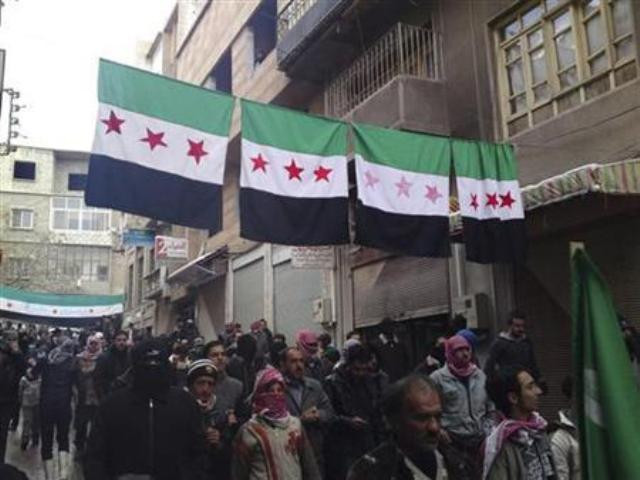
And though the appointment of UN-Arab League peace envoy Kofi Annan has offered a glimmer of hope, analysts say there are few signs that the tepid global response to the Syrian crisis is heating up.
"Faced with mounting casualties and a political deadlock, outside actors at best have been ineffectual, at worst have poured oil on fire" in Syria, the International Crisis Group (ICG) think tank said in a report this month.
"Many have chosen to view the crisis primarily through the prism of its regional strategic stakes... and have done nothing to advance prospects for a negotiated transition," it said.
Efforts to tackle the unrest at the United Nations have failed, with Russia and China blocking Security Council resolutions against President Bashar al-Assad's regime.
Without a consensus at the UN, efforts to resolve the crisis are "at a dead end," a high-ranking diplomat admitted.
Western nations have acted before without an international consensus, such as in Kosovo in 1999 or Iraq in 2003, but in this case they have tied their hands by ruling out any action without a green light from the UN.
Unilateral sanctions imposed by Washington, the European Union and others are having an effect, experts said, but will not alone resolve the crisis.
In Libya last year, Western and Arab nations were able to move forward with military action after two Security Council resolutions passed without opposition from Russia and China.
The rebels fighting ex-strongman Moamer Kadhafi also benefited from the strong backing of French President Nicolas Sarkozy and British Prime Minister David Cameron, who rallied the international community to action.
So why the double standard on Syria?
Analysts said the key difference is the complex web of regional interests at play and the ethnic and religious divisions in Syria that were not present in Libya.
Assad retains the support of his key regional backers, Iran and Lebanon's Hezbollah, that would raise the stakes in any foreign intervention.
Turkey and many Arab nations, in particular Saudi Arabia and Qatar, are backing regime opponents but some in Syria are wary that their support is aimed at boosting the country's majority Sunni Muslims over other groups.
Syria's complicated make-up -- which includes large Shiite Muslim, Kurdish, Christian, Druze and Alawite minorities -- has also complicated efforts to unify the opposition around a single unit like Libya's National Transitional Council.
"Western countries clamour for the regime to fall but are hesitant and uncertain about how to make that happen and... worried about what it might entail," the ICG wrote.
"By and large, they have taken refuge in a blend of outrage and ever-tightening sanctions."
Unlike with Kadhafi, the global community has also not turned to the International Criminal Court as a means to put pressure on Assad, with some arguing that indicting Assad would leave him no choice but to cling to power.
As the bloodshed rises -- more than 8,500 have died since the revolt erupted a year ago, monitors say -- pressure is growing for an international response.
The opposition Syrian National Council called on Monday for an urgent foreign intervention after reports that 47 women and children were killed in a "massacre" in the flashpoint city of Homs.
"We request urgent Arab and international military intervention," top SNC official Georges Sabra told a news conference in Istanbul, also calling for the creation of a "no-fly zone" over Syria and "strikes" against the Syrian armed forces.
Annan, the former UN secretary general, left Damascus after talks on Sunday without managing to secure an accord to end the bloodletting.
Experts said the best hope was to bring Moscow on board to back some form of international deal that puts real pressure on Assad.
"The net effect of this international cacophony has been to persuade Syria's leadership that it need not change a thing," the ICG said.
"If (Annan) can persuade Russia to back a transitional plan, the regime would be confronted with the choice of either agreeing to negotiate in good faith or facing near-total isolation through loss of a key ally."

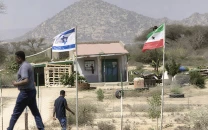
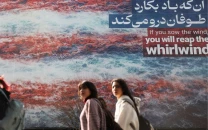
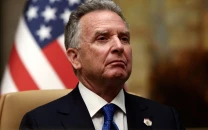

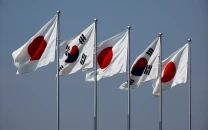
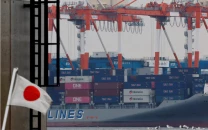












COMMENTS
Comments are moderated and generally will be posted if they are on-topic and not abusive.
For more information, please see our Comments FAQ